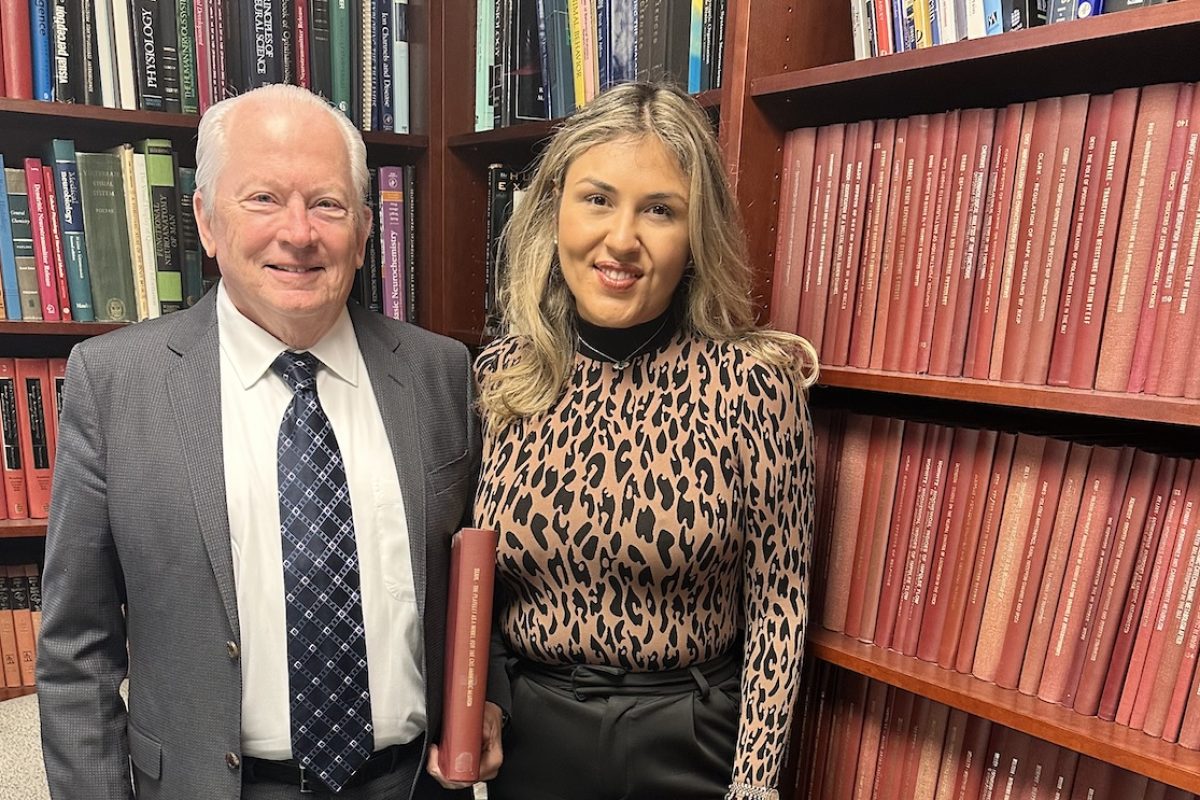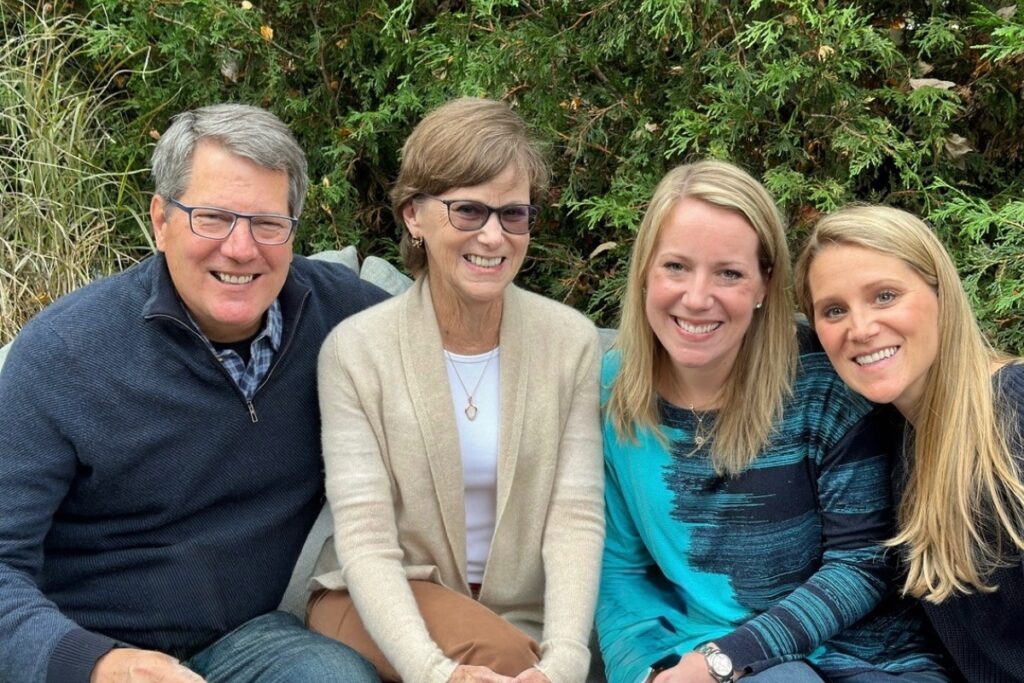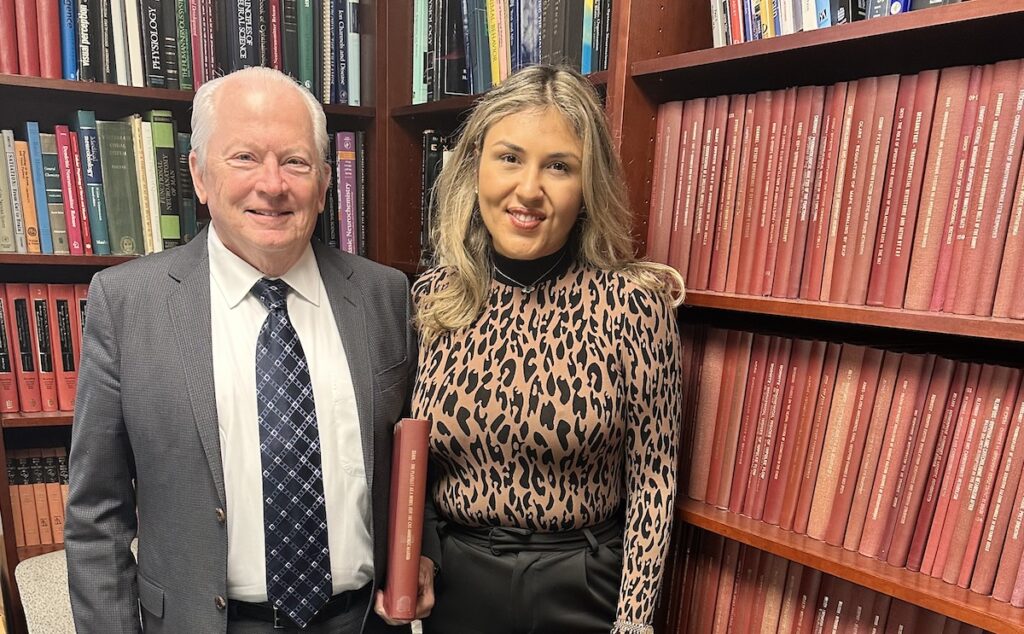When Stephen Stahl, MD, PhD’76, visited the University of Chicago in 2024, he noticed a series of hardbound dissertations in a bookcase. He found his own dissertation among the volumes—a study of pharmacology, or the effect of drugs and medications on the body and the nervous system.
Dr. Stahl recalled the professors who inspired his career and ultimately his decision, with his wife, Shakila Stahl, to fund three professorships, matched by the Wallman Challenge, which will strengthen neurosciences at UChicago.
“It was an exciting time,” said Dr. Stahl. “The role of neurotransmitters like dopamine and serotonin in psychiatric disorders and the actions of psychotropic, or mind-altering, drugs was just being discovered. I had the sense that I was at the place where things in the field were really happening.”
Today, Dr. Stahl is an internationally recognized authority in psychiatry, having published over 600 scientific papers, edited 12 textbooks, and written more than 70 textbooks over the course of his career.
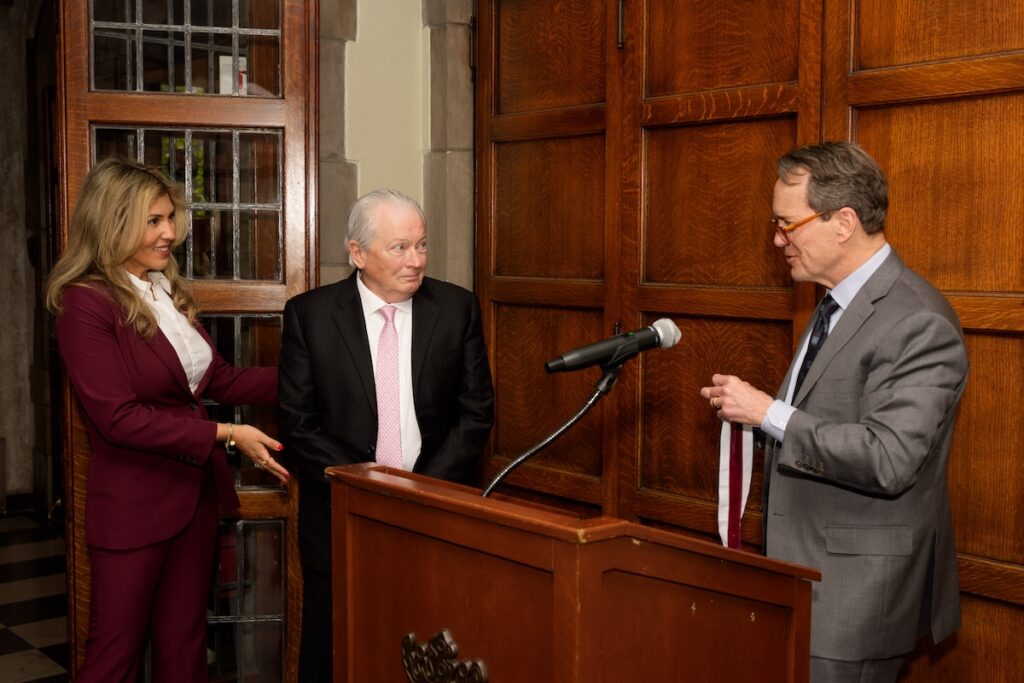
With the goal of supporting the institution where he laid the foundation for his career, Dr. Stahl and Mrs. Stahl met with Dean Mark Anderson, MD, PhD, to discuss a gift to define his legacy. “I wanted to do anything I could to enhance the neurosciences at University of Chicago,” said Dr. Stahl. “We came up with a plan to leverage my donation using matching funds from the Wallman Challenge so that we could endow three new professorships in the neurosciences.”
Photo: Shakila Stahl; Stephen Stahl, MD, PhD’76; and Dean Mark Anderson at the ceremony awarding the first Stahl Professorship in the Wallman Society of Fellows
The Stahls emphasized that their commitment to UChicago was inspired by the University’s push to transform research insights into new and improved treatments for patients. “Putting together great minds, basic science, and the clinical sciences creates the ideal environment and incubator for translating the explosive recent advances in neurosciences into solving the massive unmet needs in neurology, neurosurgery, psychiatry, addiction, and related fields,” said Dr. Stahl.
UChicago’s culture of collaboration makes intuitive sense to Dr. Stahl. “I’m fundamentally a chemist,” he said, “and when you put ingredients together, turn up the heat, and stir everything, magic happens. Give the right people the right ingredients, and they’re more likely to have a transformational idea because the scientists are talking to the clinicians.”
For Mrs. Stahl, the promise of neuroscience relates directly to the good of society. “Neuroscience is really at the forefront of the mental health revolution that we’re experiencing in healthcare today—the opportunity for mental health to be considered as a critical part of your overall health and wellness. As we incorporate insights from research into daily practice and healthcare management, we can see clinical work translating into tangible outcomes,” she said.
The first two professorships supported by the Stahls have already been awarded. David Freedman, PhD, chair of the Department of Neurobiology, has been named the first Stahl Professor of Neurobiology in the Wallman Society of Fellows. His research focuses on the brain mechanisms involved in visual learning, recognition, and decision-making. The Freedman Lab also uses computational modeling and machine learning to investigate how neural networks are involved in cognitively demanding behaviors.
Photo: Stephen Stahl, MD, PhD’76, and David Freedman, PhD, the first Stahl Professor of Neurobiology in the Wallman Society of Fellows
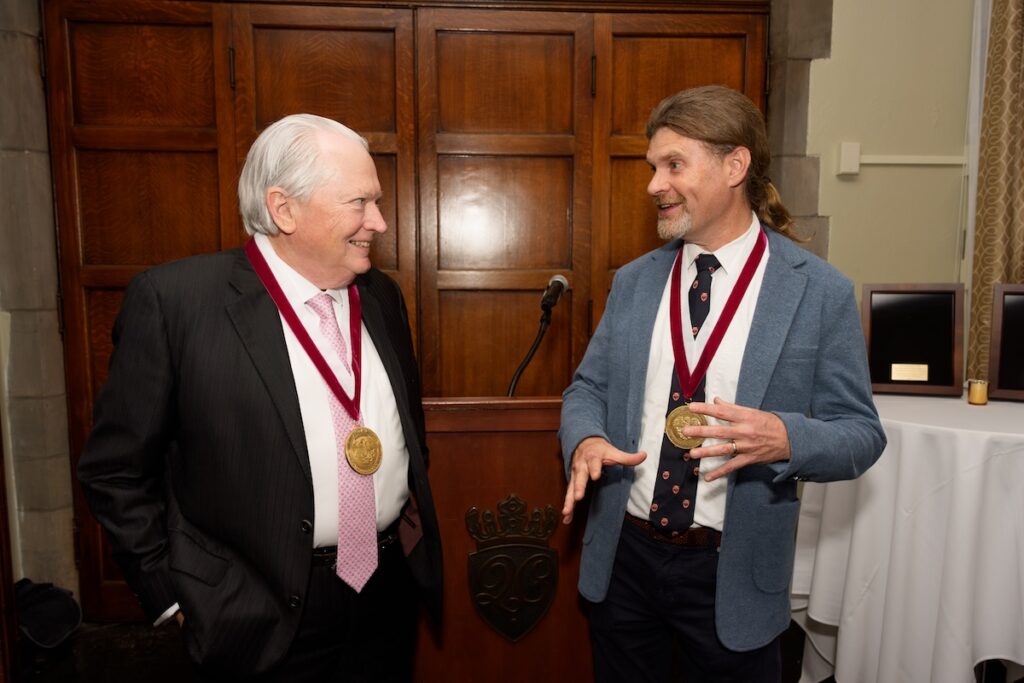
“Neuroscience is one of the most exciting and fastest growing research fields,” said Dr. Freedman. “I’m so grateful for this outstanding support from Stephen and Shakila Stahl. It is particularly gratifying that this gift comes from a scholar and alum from our program and highlights the impact faculty can have in our roles as mentors to our trainees and students.”
The second Stahl Professorship was awarded to Mohamad Bydon, MD, the inaugural chair of the Department of Neurological Surgery. Dr. Bydon is a leader in minimally invasive and robotic treatments for complex spinal conditions and has pioneered advancements in neurosurgical care. He has led national data efforts in neurosurgery, including the expanded use of AI tools to assess the cost and value of medical and surgical interventions, shaping the future of data-driven decision-making in neurosurgery. He has also led groundbreaking, first-in-human clinical trials for the regenerative treatment of spinal cord injury.
“Neurosurgery is more than a profession—it’s a calling to bring hope, healing, and a brighter future to those in need through innovation and compassionate care,” said Dr. Bydon. “It’s an honor to be the Stahl Professor of Neuroscience in the Wallman Society of Fellows, carrying on the name and legacy of an esteemed neuroscientist whose groundbreaking research changed how we treat and manage diseases worldwide.”
The Stahl Professorships are a significant investment in the future of neuroscience research and the translation of research into improved treatments and therapies. “Stephen and Shakila Stahl are helping to expand and elevate our neuroscience enterprise at the University of Chicago Medicine. Dr. Freedman and Dr. Bydon are first in a line of outstanding scholars forever associated with this professorship as leaders in neurobiology and neurosurgery,” said Dean Anderson.
As Dr. Stahl met with UChicago researchers to hear about their work, he observed that the field of neuroscience is as exciting today as it was when he entered the field. “This is one of the greatest frontiers in all of science, and the chance to make a contribution with a career in the neurosciences has never been greater. I only wish I were a graduate student today at the University of Chicago and could do it all over again,” he said.
“It’s so fun and rewarding as a donor, to see your money go to work right away,” Dr. Stahl added. “That’s why I did it. I wanted to see the impact in my lifetime and have been impressed with the developments achieved. I cannot wait to see what lies ahead.”

